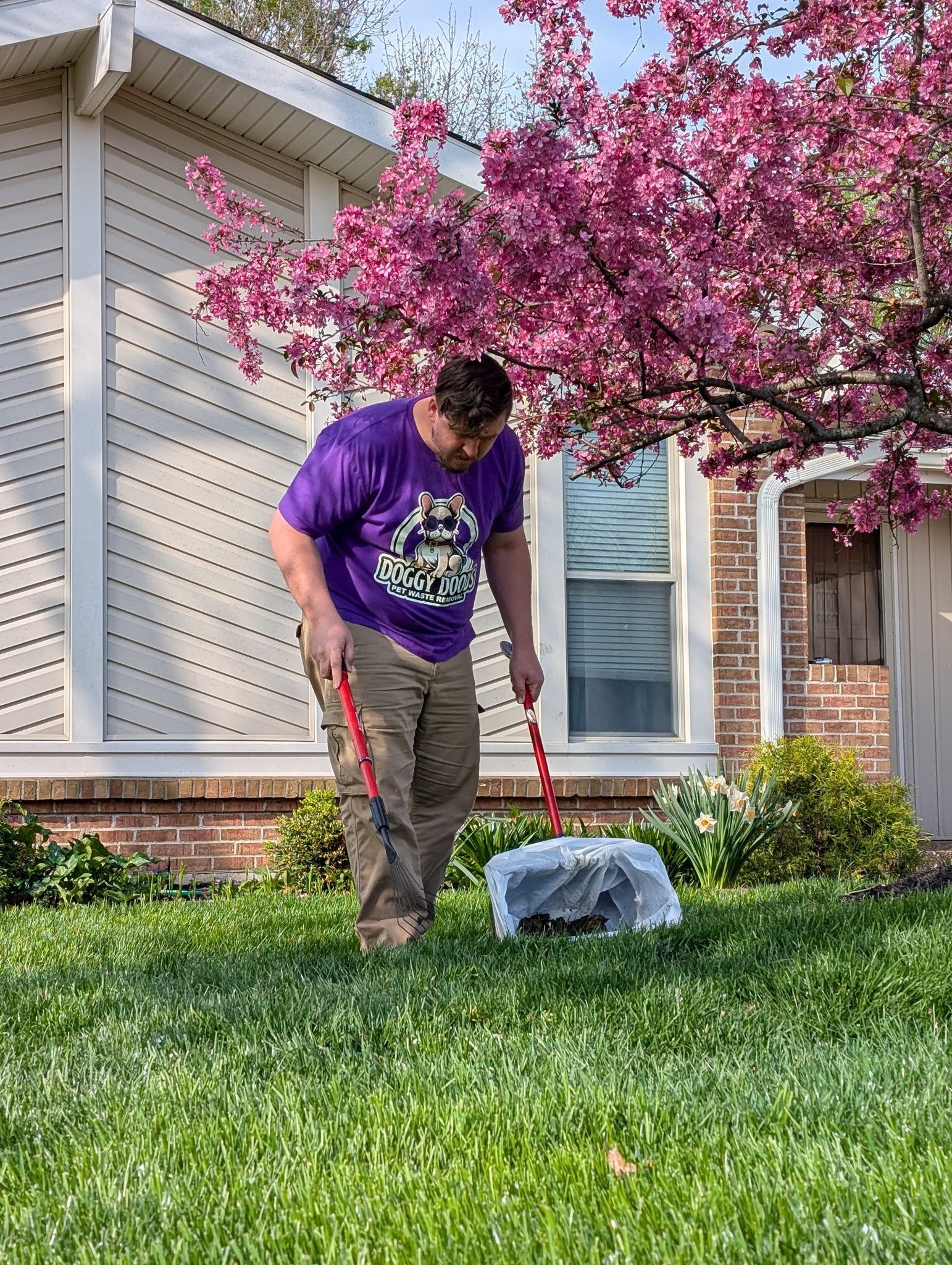Even after you scoop, your yard isn’t always clean. Tiny traces of bacteria and odor-causing residue can linger in the grass and soil. If your kids or dogs spend time outside, knowing how to keep your yard clean and odor-free after dog poop protects both your family and your lawn.

Dog poop is loaded with microorganisms that can harm people, pets, and the environment. The Center for Disease Control and Prevention (CDC) warns that dog feces can carry germs such as E. coli, Salmonella, and Campylobacter along with parasites like roundworms and hookworms.
Even after removal, roundworm eggs may persist in soil for months or years. Giardia and hookworm larvae can survive for weeks in moist environments.
And no, it’s not fertilizer. Dog waste damages grass because its nitrogen and salt levels “burn” turf and disrupt healthy soil balance.
Scoop Often
Pick up waste daily or several times a week. Consistent cleanup prevents odor and limits bacteria growth. Always scoop before rainfall, which can spread contamination through runoff.
Dispose Properly
Don’t compost dog poop or toss it in storm drains. The U.S. Environmental Protection Agency (EPA) recommends either bagging and trashing it or flushing unbagged waste where permitted.
Rinse Residue
After removing solids, a gentle hose rinse helps dilute small traces left behind. Avoid strong sprays that may spread bacteria farther.
Harness Sunlight and Airflow
Ultraviolet (UV) rays from sunlight naturally kill many surface bacteria and dry out parasite eggs. Keeping grass trimmed and well-ventilated reduces moisture and odor.
Use Safe Odor Neutralizers
For mild smells, household options work, such as baking soda to absorb odor and diluted white vinegar (1:1 with water) to break down organic residue. Let spots dry completely before pets return.
Consider Enzymatic Cleaners
Outdoor enzyme sprays use “good” bacteria and enzymes to break down odor-causing organic material. They don’t kill germs, but they digest leftover waste molecules that create smells. Products labeled pet-safe and for outdoor use are ideal for routine freshening.
It’s important to understand what each process does:
Deodorizing (Doggy Doods’ Specialty): Uses enzymatic treatments to neutralize odors and reduce odor-causing bacteria safely. It keeps yards smelling clean and pleasant for daily life.
Sanitizing: Uses EPA-registered disinfectants that kill pathogens. This is necessary only after contagious illnesses or parasite outbreaks, such as parvovirus or Giardia. Enzymatic deodorizing does not replace disinfection in those cases.
If your dog recently battled a parasite or viral infection, speak with your veterinarian about safe sanitizing products before letting pets back on the grass.
Even with good habits, sometimes you need backup:
Odors linger despite cleaning, you have multiple dogs or limited time, or you want extra assurance of cleanliness between vet-approved sanitizing.
That’s where Doggy Doods helps. Our enzymatic deodorizing treatments break down odor-causing residue deep in your lawn. A safe, natural way to keep outdoor spaces smelling fresh week after week.
A clean yard means a healthier, more enjoyable space for everyone. Daily scooping and sunlight go a long way, and a little help from enzyme-based deodorizers keeps things fresh without harsh chemicals.
When it starts feeling like too much, Doggy Doods is here to take the load off (literally). Get a Free Quote now!